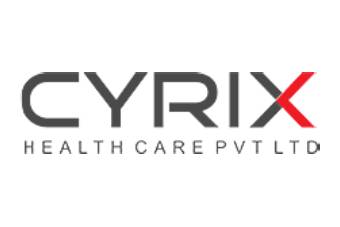
Established in 2004 and headquartered in Kochi, Kerala, Cyrix is a recognized leading medical equipment provider with a comprehensive suite of products. Its primary focus is equipment servicing, including Biomedical Equipment Maintenance Programs (BEMP) under Public-Private Partnerships (PPP) and servicing for the private healthcare market. Recognizing the capital-intensive nature of medical equipment investments for hospitals, Cyrix also offers refurbished medical equipment across the healthcare delivery value chain. The global re-sale market for medical equipment, valued at USD 15.2 billion in 2021, is projected to grow at a CAGR of over 11% in the next few years. Additionally, the company provides specialized component-level repairs and services.
Cyrix’s operations extend beyond India, with an established presence in international markets, including Kuwait, Jeddah, and Dubai.
In addition to its robust public sector partnerships, Cyrix is rapidly expanding into the private healthcare market, which is ~7x the size of the public market. Despite its scale, the private sector remains fragmented and underserved. Cyrix’s expertise positions it to become a leader in this segment, bridging the gap with reliable, high-quality servicing solutions.
With a workforce of ~1,000 biomedical engineers deployed nationwide, particularly in lower-tier markets, Cyrix combines technical excellence with deep local knowledge. This manpower-intensive model supports the company’s ability to scale operations and serve both public and private sectors effectively. It started as a dealer of Ultrasound and X-Ray equipment, over time they have aspired to become a one-stop shop as a solutions provider for the best quality medical equipment.
The plan for Cyrix is to drive organic growth by establishing a new training & distribution center, working capital both for BEMP projects and private services, and incremental capex at existing warehouses.
The investment aligns with Somerset’s mission to create tangible impact by increasing access to healthcare in lower-tier markets through improved uptime and timely servicing of medical equipment. This directly enhances secondary and tertiary care delivery in underserved regions.
